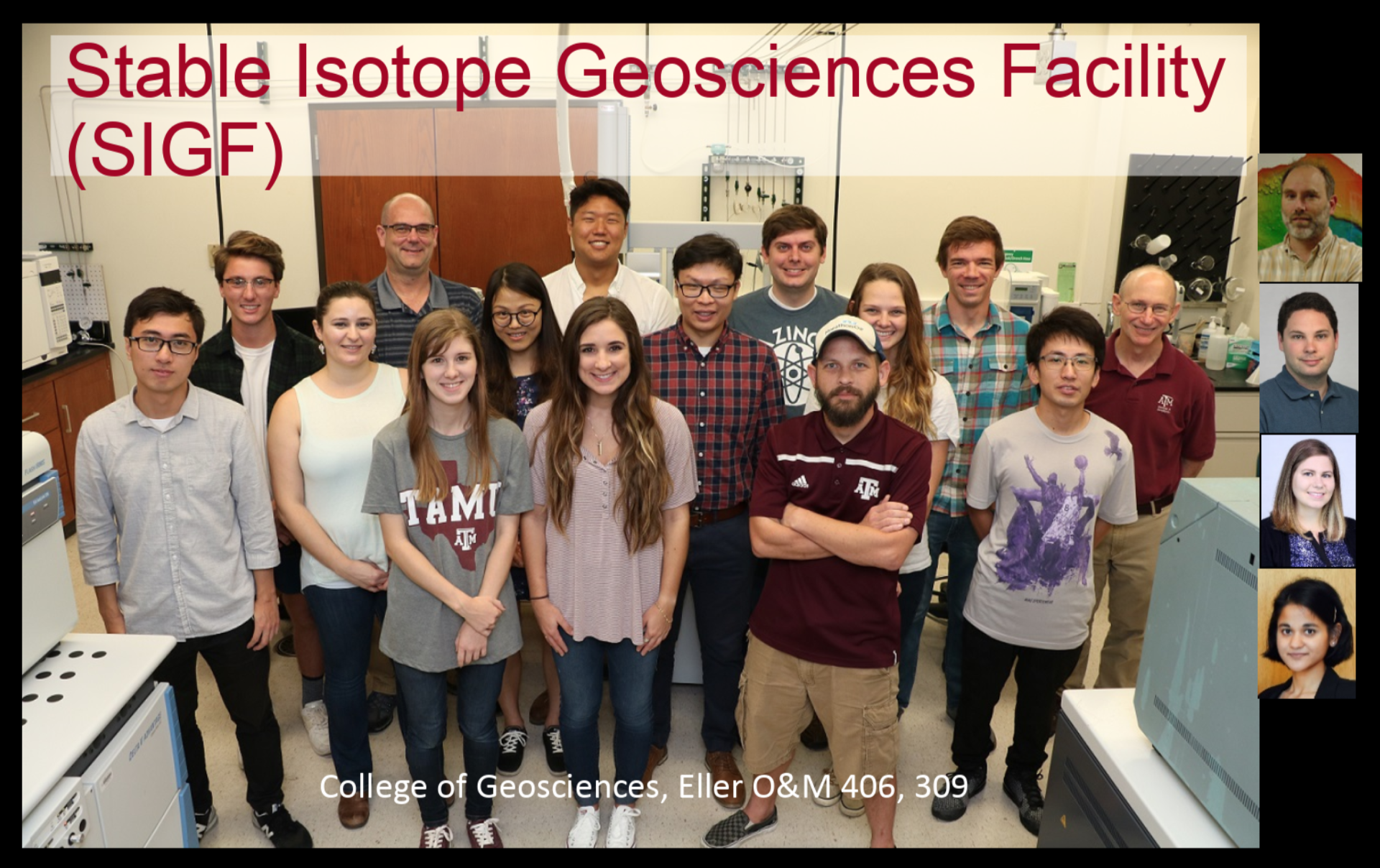Inaugural Ions At Work Symposium Brings Together Mass Spectrometry Researchers at Texas A&M
Dr. Ethan Grossman continues to do research in mass spectrometry and helped organize the first Mass Spectrometry Symposium at Texas A&M.
Oct 24, 2018
A mass spectrometer is a scientific instrument that converts a compound or element into an ion in gas or plasma and sometimes a solid. It allows scientists to measure “very, very minute quantities of elements and compounds” and can identify where the compounds originated, explained Dr. Ethan Grossman, professor in the Department of Geology and Geophysics at Texas A&M University.
“Ions at Work: A Symposium Introducing TAMU’s Mass Spectrometry Core” took place on Oct. 5 and was the first of its kind. Researchers from across the country were invited to discuss their research and the impact that mass spectrometry has on their research.
The symposium was organized by the Director of the Mass Spectrometry for Isotope Analyses (MSIA) Dr. Ethan Grossman, and the Director of the Applied Mass Spectrometry Subunit, which includes GERG, Office of the State Chemist, and The Flavor Chemistry Laboratory, Dr. Anthony Knap, professor of Oceanography at Texas A&M.
The Stable Isotope Geosciences Facility (SIGF) and the Radiogenic Lab are two of the three labs making up the Mass Spectrometry for Isotope Analyses (MSIA) Subunit of the Mass Spectrometry Collaborative Core. The newly established Mass Spectrometry Collaborative Core helps researchers collaborate and coordinate with each other, as their labs stay separate from each other. Funding for the Symposium and the Collaborative Core was provided by the Texas A&M System Chancellor’s Office using part of the $5 million dedicated to mass spectrometry in 2016. Funding support was also provided by Texas A&M President Michael K. Young's President's Excellence Fund.
The Stable Isotope Geosciences Facility (SIGF) was established at Texas A&M in 2009. Designed to provide accessible, reliable and high-quality stable isotope measurements for the College of Geosciences and the Texas A&M community, it was also placed for current students to get the chance to experience “working with equipment that they’re going to see in industry, not equipment that’s 10 or 15 years behind the times,” Grossman said.
SIGF is co-directed by Grossman and Dr. Brendan Roark, and it is a partnership between four faculty members in the College of Geosciences: Grossman in Geology and Geophysics, Roark in Geography, and Dr. Niall Slowey and Dr. Yige Zhang in Oceanography.
Students and the Executive Committee of the Stable Isotope Geosciences Facility.
Current research led by Geology and Geophysics faculty and students
Grossman’s current research focuses on three main topics: Earth’s temperature history during the early evolution of animals; clumped isotope paleothermometry and its application to paleo-ocean temperatures and petroleum basin thermal histories; and Caribbean extinctions, environmental change, and the uplift of the Isthmus of Panama.
His currents students are involved in numerous projects as well. Graduate student Meagan Depugh helps measure oxygen isotope profiles in brachiopod shells to quantify high latitude seasonality in the late Paleozoic, while grad student Bryce Barney is using carbonate clumped isotope analyses of brachiopod shells to study paleotemperature in the late Ordovician.
Post-doctoral student Will Defliese and Ph.D. student Zeyang Sun are conducting studies of clumped isotope reordering rates and of the thermal history of the oil-rich Delaware Basin. Research done by Nate Naylor, who graduated this past year, helped show that clumped isotopes can be used to reconstruct basin thermal histories, and that the geothermal gradient in the Delaware Basin was higher in the western part than the eastern part, consistent with other geothermometers.
Grossman’s project in Panama has involved former post-docs John Robbins and Paola Rachello; former graduate students Kai Tao and Lauren Graniero; and current student Divya Saxena.
Grossman’s research has been funded by two recently-expired NSF grants and the Berg-Hughes Center. He is also a co-Pl on a TAMU Seed Grant for Water Research and a SENACYT grant from Panama. Grossman holds the Michel T. Halbouty Chair in the College of Geosciences, and that endowment also supports his research.
By Mariana Figueroa '19


